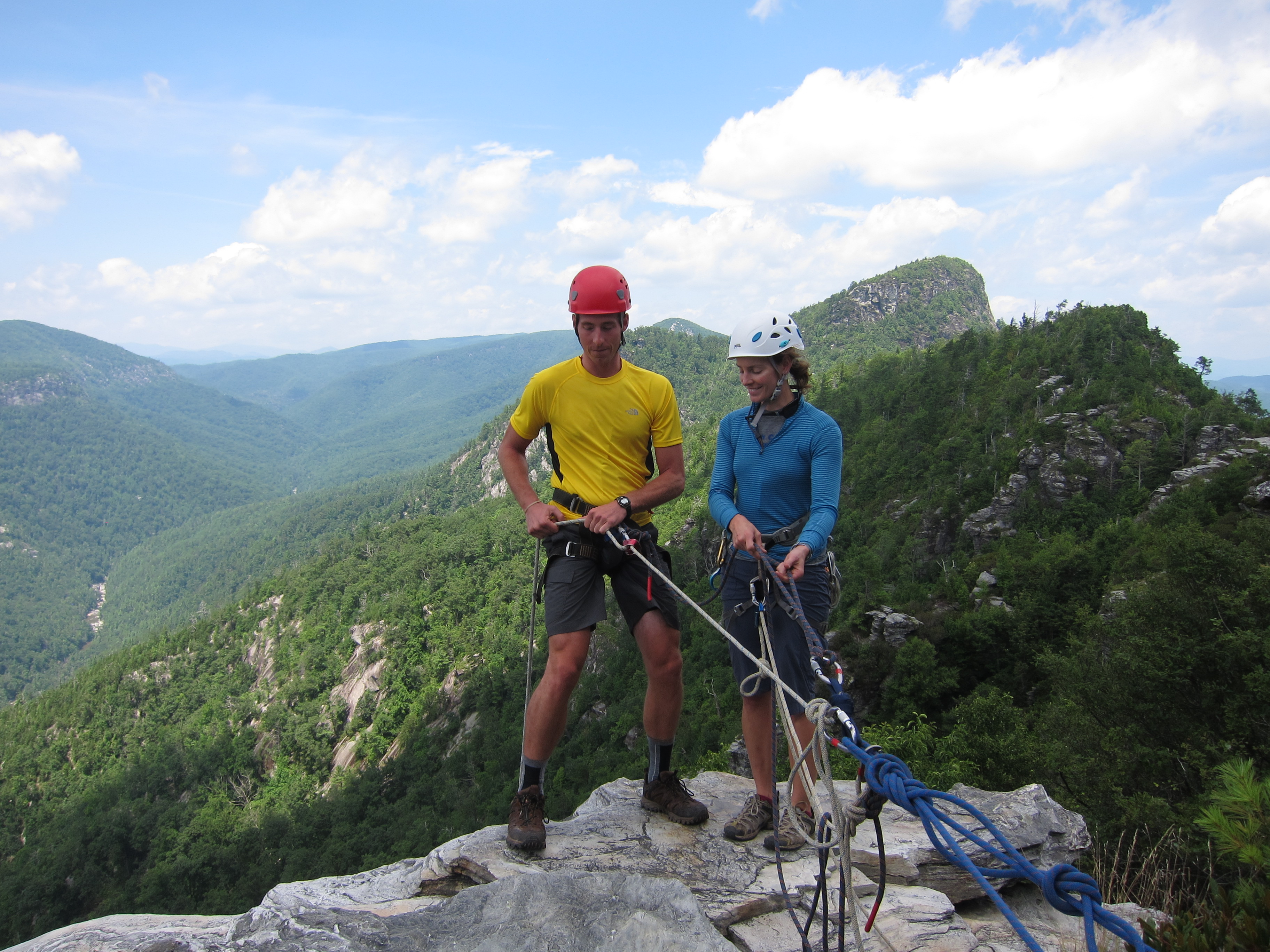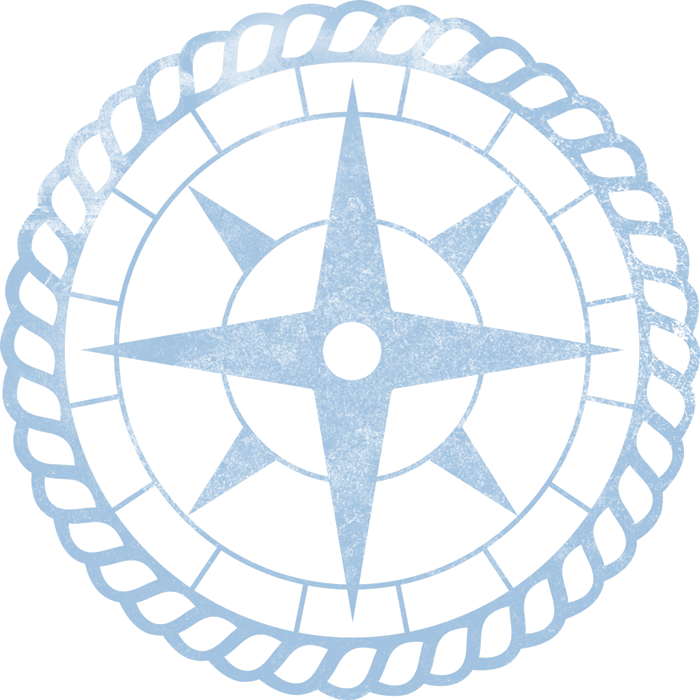FIELD POSITIONS

Frequently Asked Questions

Is there a required minimum age to work for North Carolina Outward Bound School?
All Outward Bound staff, including Interns, must be 21 years of age or older.
What are the general requirements to become an instructor for North Carolina Outward Bound School?
All applicants should have the following:
- Age: 21+
- Certifications: Wilderness First Responders (WFR) and current CPR
Leadership We look for leadership experience at other outdoor organizations, in education and in public service. Field staff at Outward Bound are passionate about their work with students and are skilled at finding varied ways to offer leadership opportunities and build rapport.
Stamina Applicants must be sufficiently fit to participate in all course activities and maintain ample energy, strength, and focus to assist students with physical and emotional obstacles. Outward Bound courses challenge instructors with 18-mile hikes, 40-50 lb. backpacks, all-day and into the night paddles, sometimes uncooperative students, changing weather, and separation from friends and family.
Time Commitment Summer is our busiest time at Outward Bound. Almost all of our field staff begin working at one of our summer to fall programs (May - October). To blossom as an Instructor requires a commitment of two or more summers.
Outdoor Technical Skills Our course areas are incredibly diverse, and we look for that same diversity in the technical skills of our instructional staff. We seek instructors with experience in at least one, if not multiple, of the following areas: backpacking, backcountry navigation, managing groups in hazardous weather, rock climbing, mountaineering, flatwater canoeing, whitewater canoeing, and sea kayaking. Most importantly, we look for and build upon a subtle, yet important skill: outdoor judgment -the ability to make a sound, safe decision under challenging circumstances. Logistics coordinators are not required to have the above technical skills, although outdoor experience is valuable.
Professional Experience In one or more of the following areas:
- Teaching
- Counseling
- Group Leadership
Communication Skills instructors need to have the ability to:
- Listen and articulate ideas
- Organize lessons and teach effectively
- Inspire others to a higher level of motivation
- Offer and receive open feedback
- Work effectively with people from diverse backgrounds
What if I do not currently meet the requirements to be considered as an Assistant Instructor?
Complete an Internship: If you do not meet the requirements to become an assistant base level instructor we suggest getting involved in an Internship Program. Currently, Outward Bound schools across the country offer a variety of internship programs designed to provide a greater understanding of Outward Bound philosophy and operations as well as an opportunity to develop technical and group facilitation skills. Find out more about internships across the Outward Bound system.
For individuals interested in working with our at-risk programs, the process is a little different. Because these programs rely on strong student management skills, we ask individuals interested in working as at-risk instructors to participate in our at-risk apprenticeship and work one to three courses in the apprentice position before being considered for an Assistant Instructor position. Depending on the level of commitment and performance, apprenticeship may lead to a position as an assistant instructor or support staff. Find out what at-risk apprenticeships are available.
Become Support Staff: Other applicants may be considered to begin working for the school as support staff. These staff members coordinate and execute the behind-the-scenes logistical needs to support students and staff in the field. Please send a resume and cover letter to be considered for a Support Staff position. Open Positions are listed on the left side of the careers page.
Take an Outdoor Educator Course: Many folks looking to transition into a career in experiential education participate in our Outdoor Educator Course. This 50-day course is designed for people who are interested in getting into the field of outdoor education and would like to develop technical, leadership and teaching skills. We offer this course in the spring and fall. > Outdoor Educator Courses
Get More Technical Skills: Whether you're considering becoming a classic or at-risk course instructor, go outside! Explore wilderness areas to hone your navigation and outdoor living skills. Spend more time rock climbing and paddling to increase your technical competency. Take a Wilderness First Responder course to gain the medical certification required of most outdoor education programs. Spend a season leading wilderness trips for a summer camp to gain experience managing groups, teaching, and facilitating outdoor adventure experiences. There are a variety of pathways into this type of work and our staff come a wide range of backgrounds.
How do I get the required certifications?
We encourage as many staff as possible to be WFR certified, including Interns and Support Staff. Nationally recognized certification providers include:
What kind of training do you require new staff to attend?
NC Classic Program Instructors
New staff should plan on attending a two week field-based introductory training beginning in March or early May for North Carolina Classic Programs. New Staff Training is designed to provide new instructors with a clear picture of our course curriculum and the expectations of how to run an NCOBS course. New instructors will also be required to attend a 2-dayAll Staff Training which will be spent focusing on local operating procedures, emergency call-out protocol, techniques for program delivery, building community and diversity training. Training days are not paid; however, staff accrue field credits for their participation, assisting them in moving up the pay scale.
Florida At-Risk Program Instructors
New At-Risk Program Staff will complete New Staff Training in January, May, or September. Florida At-Risk Programs offer various other training opportunities throughout the year focused on working with our specific student population and in our specific program areas.
How long does it take to become a Lead Instructor?
The role of the assistant instructor has been designed to allow individuals who are new to our school an opportunity to become oriented to the expectations of the job, and to demonstrate the skills required to take on the full responsibility for the emotional and physical safety of our students and the overall quality of NCOBS courses.
The amount of time it takes to move from assistant instructor to lead instructor varies widely from individual to individual and depends mainly on how much experience one has in similar leadership roles prior to starting at NCOBS. Folks commonly move up during their second summer season of work. Individuals with significant prior experience may progress more quickly.
What are Specialist positions?
Staff working in technical specialist positions support our climbing, kayaking, and/or whitewater days on courses.
Climbing Specialist Criteria: Climbing log listing 30+ climbs led on traditionally protected multi-pitch routes, 10 of which are rated at 5.8 or higher.
River Specialist Criteria: ACA level 4 certification in tandem and solo whitewater canoeing as well as Swiftwater Rescue training.
Sea Kayak Specialist Criteria: paddling log listing various marine environments paddled, preferably hold ACA Level 3 Coastal Kayaking Instructor or BCU Level 2 Coaching + 3 Star Sea Assessment Awards.
NCOBS provides in-house opportunities for ongoing professional skill development. Additional Instructor Development Funds can be utilized to support non-NCOBS training to assist instructional staff in gaining the skills to work as technical specialists. Hiring for specialist positions includes a field-based assessment. Staff hired into the school as technical specialists usually also work as field instructors.
What age group would I be working with?
Teens: 14-18 years old (A majority of our courses work with this age group during the summer.)
Adults: 18+ years old (These are generally shorter, year-round courses.)
At Risk: Teens 12-17 years old and adults 18-22 years old
What benefits are provided to field staff?
- Room and board at one of our base camp communities
- Professional Equipment Purchase Program
- Worker’s Compensation
- Professional development opportunities at no or little cost (i.e. AMGA SPI, Swiftwater Rescue, Sea Kayak Camp)
- Wilderness First Responder & CPR Reimbursement- Available to staff after their initial hire into the school
- Long Term Agreements for at-risk work: 20-month agreements for full-time year-round work with our at-risk programs (additional benefits include priority in scheduling, salaried pay, and housing stipend for off-base living)
- An amazing community of people to live, work, and play with
What is the salary range?
The top of our instructional pay scale is $142/day; starting salary for assistant instructors is $70/day. Starting salary for support staff is $55/day.
Is there year-round employment?
Many of our instructional staff work in the field year round, alternating between work at our various base camps depending upon the time of year. The majority of field employment is offered seasonally, with instructional staff receiving work agreements arranged specifically course by course, while support staff and specialists are offered seasonal work with a start and end date. Courses for at-risk student populations run year round in central and south Florida, and staff on Long Term Agreements are guaranteed year-round work.
Where are the base camps located, and what are they like?
North Carolina Mountains
Our North Carolina mountain base camps are located in the Blue Ridge Mountains of the southern Appalachians. Surrounded by ranges, steep gorges, granite outcroppings and a multitude of rivers; they are in prime locations for both work and play. Cedar Rock and Table Rock Base Camps provide staff with shared cabin housing, a staff bath house, community space and a central kitchen with a phenomenal cook. There is an internet connection and multiple computers for staff use. Phones are available for use outside of business hours. Cell phone service is patchy at best.
Table Rock is located just south of Boone, NC, perched on the edge of the Linville Gorge Wilderness Area. Cedar Rock is located just outside of Brevard, NC and south of the Shining Rock Wilderness Area, in Pisgah National Forest. Both base camps house roughly 60 staff at the peak of the summer season.
North Carolina Outer Banks
Outer Banks courses take place just outside of Marshalberg, North Carolina. This small mobile sea kayaking program runs out of a small coastal house rented during the season, situated in the unique barrier islands ecosystem. Instructors share kitchen and living space. There is good cell phone service and wireless internet connection is available.
Florida
Sunset Island is a quick paddle or ferry ride across the mouth of the Barren River from Everglades City, Florida. Once an active fishing lodge in the 1940s, the base camp now houses about 20 staff members who run canoe expeditions in the 10,000 Islands and Everglades National Parks throughout the winter. Shared housing, community space and kitchen are provided. Several computers are available for staff use; there is a wireless connection and decent cell phone service.
The majority of our courses for at-risk student populations run out of bases in Scottsmoor and Key Largo, FL. The Scottsmoor base is about an hour east of Orlando, close to many of Florida's abundant waterways like the St. John's River and the Intracoastal Waterway. The Key Largo base is about an hour and a half south of Miami, in the Florida Keys. Both bases offer some year-round housing for staff, and have cell phone service and wireless internet.
South America
Our South American program is located in Bariloche, Argentina in the heart of the lake district of Patagonia. Our small mobile program works closely with a local operator with whom we share an office and warehouse space. Wireless internet is available at the office and in most hostels. Staff are provided housing via local hostels, and public transportation is close by. Bariloche is a great adventure city with access to great expedition routes, a hut system for overnight stays, serving as a great jumping off point for instructor adventures.




